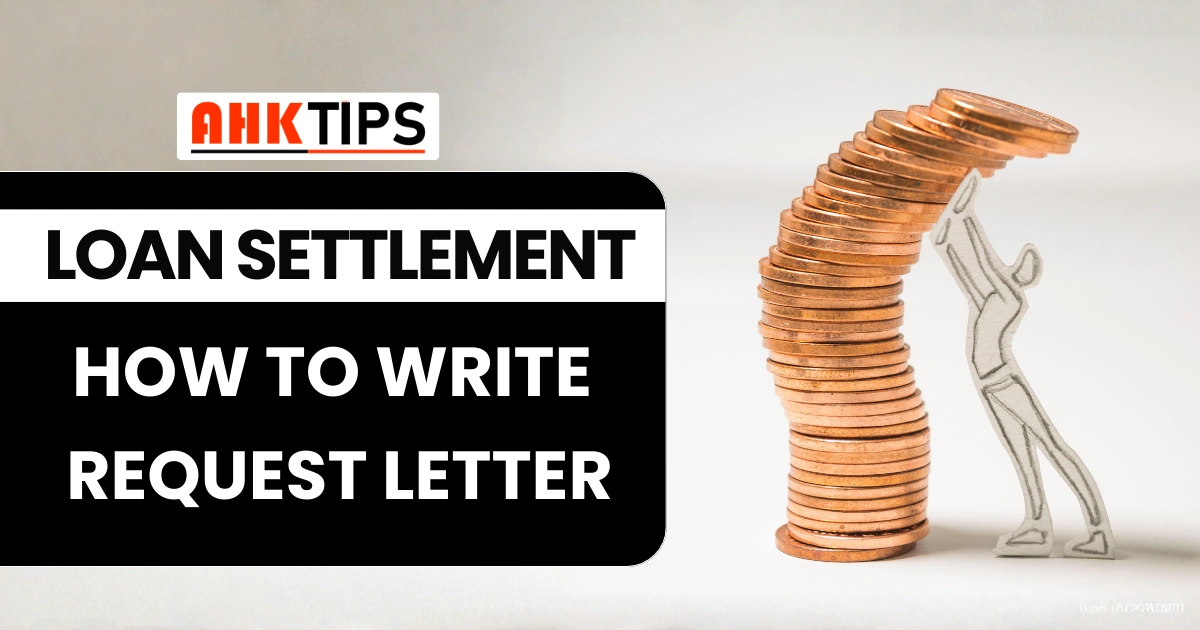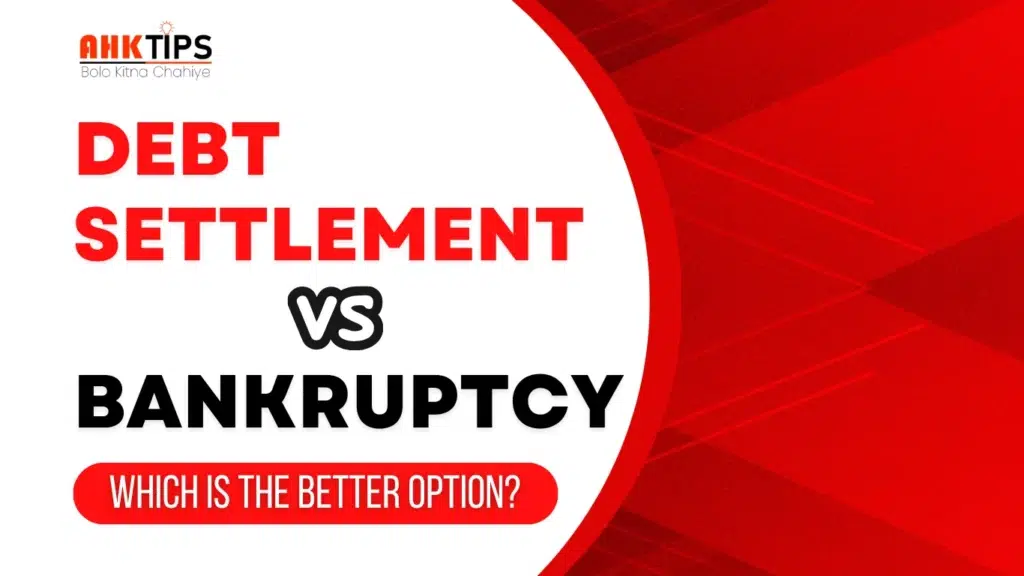





Loan Settlement is a process in which an agreement is made between the borrower and the bank to close the loan by paying a certain amount instead of the full outstanding loan amount. Although this process may be a little relaxing for the borrower, it also hurts the guarantor. The guarantor is a person who guarantees the loan borrower and takes responsibility that if the borrower is unable to pay, they will pay the bank.
That is why, when the loan is settled, it is recorded as “settled” in the credit bureau, which is considered a type of default situation. As a result, this information can also be added to the guarantor’s credit report, which can cause his CIBIL score to drop. Along with this, if the guarantor himself wants to take any kind of loan or credit card in the future, he may face rejection.
Also, if the bank feels that the settlement was not fair or the full amount was not received, it can legally recover the dues from the guarantor. Therefore, before becoming a guarantor, it is important that the person takes complete information and understands the risks. Also, it should be the responsibility of the guarantor to regularly monitor the CIBIL report, get timely updates, and obtain written consent from the bank.
When someone borrows money from a bank or other financial institution, they usually need a guarantor. This person is a guarantor, which means that if the borrower can’t pay back the loan on time, they will be responsible for it. This is a big job because the guarantor’s finances are at stake. But when it comes to settling a loan, a lot of people wonder, “Will the guarantor be affected after the loan is settled?” Let’s talk about this in simple terms.
First, you need to know what the difference is between loan settlement and loan repayment. When a borrower pays back their entire loan on time through EMI, it is called loan closure or repayment. When someone can’t pay back the whole loan for some reason and agrees to pay the bank a certain amount, that’s called Loan Settlement.
But this effect depends on a lot of things, like the type of settlement, how it is reported, and the role of the guarantor.
Next, we’ll learn more about how it works, how much of an effect it has, whether it can be avoided, and what the guarantor should keep in mind. Let’s move on now.
A loan guarantor is a person who helps someone else to get a loan, but does not take the loan themselves. When a person takes a loan from a bank and the bank feels that there may be a risk in giving the loan, it asks for a guarantor. The guarantor promises that if the borrower is unable to repay the loan, he will take the responsibility of repaying the loan in his place.
This means that the guarantor is not just a name, but he is also legally responsible for that loan. If the loan is defaulted (i.e., not repaid on time), the bank can also ask for money from the guarantor. Therefore, becoming a guarantor is a big responsibility, which should be accepted only after careful consideration.
It is a financial process in which a bank or financial institution allows the loan taker to settle the loan by paying a lesser amount than the entire outstanding loan amount. This facility is for individuals who are unable to repay their loans on time and have a history of continuous default.
Under a settlement, the bank can agree on a lump sum amount, which closes the loan. However, it is essential to note that settling the loan can negatively impact your CIBIL score, potentially making it more challenging for you to obtain a loan in the future. Therefore, it should be adopted only as a last option.
When a person is unable to pay the EMI of his loan on time and the outstanding amount accumulates over a long period, the bank or financial institution offers the option of loan settlement. In this, the bank allows the customer to pay a discounted amount instead of the entire outstanding amount, thereby settling the loan matter.
The process of settlement comprises discussions between the bank and the customer, wherein the bank assures that the customer can’t pay the entire loan amount. Thereafter, the bank issues a single-payment offer, which is typically lower than the outstanding loan balance. On the payment of this settled amount by the customer, the bank marks the loan as “Settled”. Yet, this is not good for the CIBIL score since it is not treated as a “Complete Payment”.
Hence, loan settlement should be opted for as a matter of last resort, and if at all possible, loan repayment schemes, loan restructuring, or alternative financial solutions must be opted for so that the credit rating is not impacted.
The following documents are required:
If you want to apply it online, then follow the easy steps given below:
Visit the bank’s website or app.
Check the customer support section.
Fill out the request form for the settlement.
Upload the required documents.
Submit and wait for the bank’s response.
Read the bank’s offer.
Make payment
Although both Loan Settlement and Credit Card Loan Settlement aim to provide relief to the borrower, there are some important differences between them.
| Points of Difference | Loan Settlement | Credit Card Loan Settlement |
| Type | Settlement of any type of loan (personal, home, car, education, etc.) | Settlement of Credit Card dues only |
| Settlement Process | The bank fixes a lump sum amount, on payment of which the loan gets settled. | The credit card company settles the amount at a fixed rate. |
| Impact on CIBIL score | CIBIL score may drop by 50-100 points, and it may become difficult to get a loan in the future | There is a huge impact on the CIBIL score, and it may be difficult to get a new credit card. |
| Possibility of getting a loan in the future | You may face problems in getting a home loan, a car loan, or any other loan. | Credit card companies may refuse to issue the card. |
Loan Settlement has a direct and negative impact on your CIBIL score. When a person takes a loan from a bank or NBFC and is unable to repay the entire amount due to some reason, the bank gives him a chance to make a settlement, which is called a Loan Settlement.
However, there is a huge difference between a Loan Settlement and a Loan Closure. If you close your loan by repaying its full amount, it is recorded as “Closed” in your credit report, which improves your CIBIL score. But if you have some amount of the loan waived off under an agreement with the bank, it is reported as “Settled”, which can harm your credit score.
If you have settled the loan and now want to improve your CIBIL score, then you can take the steps given below:
Here are some important points to consider that will help you choose the right Loan Settlement service:
Check the service provider’s credentials.
Before hiring a settlement service, make sure that the service provider you are hiring is registered and certified with financial institutions and banks. Only a reliable service provider can provide you with the right guidance and support. Checking online reviews and customer feedback is a good way to do so.
Check the service charges and other expenses.
Many service providers also charge a service fee, but make sure that the charges are not high and there are no hidden costs. Negotiate with the service provider beforehand about which services are free and which you will have to pay extra for.
Customer support and communication
A good service provider will always stay in touch with the customer and resolve their problems properly. Make sure they answer your questions quickly and are ready to work with you in any difficult situation.
Join our service
If you are also trapped in the debt trap and are facing a financial crisis, and want to adopt the path of Loan Settlement, then you can apply for our Loan Settlement service. We will help you settle your loan. Along with this, we provide you relief from the burden of the loan within 6 – 8 months. If you want to get more information about our service, then you can contact us.
The time taken for the settlement process also depends on various factors, such as the policies of your bank or lender, the outstanding amount, and the communication between the two of you. Usually, this process can take from 1 to 3 months.
The first action in the process of settlement is to approach the bank, where you tell your problem and payment status to the bank. Then, the bank proposes a settlement offer according to your situation. In case you agree with that proposal, you need to pay the amount to the bank within the agreed time. The bank indicates the loan as settled, and this would take some time.
The longer this entire process continues, the more it can impact your CIBIL score, so it is preferable to resolve the issue sooner.
Let us understand the difference between them in simple language:
1. Definition
2. Process
3. Debt Relief
4. Effect on CIBIL score
5. Cost & Time
It has the following advantages and disadvantages:
Advantages
Disadvantages
Below, we will know in detail how this can be done.
1. First, contact the bank
2. Ask for an OTS (One-Time Settlement) proposal
3. Take the settlement deal in writing (Settlement Letter/NOC)
4. Understand the impact on CIBIL score
5. Avoid default again in the future
Yes, loan settlement has a direct and negative impact on the guarantor as well. Let’s understand this in detail:
A guarantor is a person who supports the creditworthiness (ability to pay) of the loan borrower. If the borrower defaults, the amount can be recovered from the guarantor. Therefore, the role of a guarantor is very important for a bank or NBFC.
Impact on credit score:
Loan settlement is considered a credit default. When this settlement is reported to CIBIL or other credit bureaus, it may also be linked with the name of the guarantor, which may cause their credit score to drop.
Difficulty in taking future loans:
If the guarantor himself applies for a loan or credit card in the future, this settlement reduces his loan eligibility. Banks may consider him a high-risk borrower.
Financial and legal liability:
If the bank does not agree to the settlement, then it can legally recover the outstanding amount from the guarantor. For this, a notice or case can also be sent to him.
Keep timely information: The guarantor should keep getting information about the loan status of the borrower from time to time.
Check CIBIL report: One should check their CIBIL report from time to time, so that if there is any wrong entry, it can be corrected.
Take notarized and written consent: If the loan is being settled, then the guarantor should take information and consent in writing.
Finally, it is obvious that the loan settlement process is not just limited to the borrower but also impacts the guarantor. Whenever a loan is settled, it is a default in the eyes of the bank and is reported to the credit bureaus as a “settled account”. Hence, the guarantor’s credit report can also be affected as he is a legally responsible party to the loan.
Also, if the guarantor is not informed about the settlement, they may face rejection while applying for a loan in the future. Hence, it is important that one understands the situation completely before becoming a guarantor and takes measures to ensure their financial security, along with trusting the borrower’s financial position.
Finally, becoming a guarantor is a big responsibility. This decision should be taken with full knowledge and thought, because it can not only affect your financial image but can also ruin your plans. So, be cautious, stay informed, and make any decision after understanding the responsibility.
Que: What is the difference between loan settlement and loan repayment?
Ans: Loan repayment means paying the fixed amount of the entire loan and interest on time. Loan settlement means that the bank waives some amount and closes the account with the remaining amount.
Que: Does loan settlement affect the CIBIL score?
Ans: Yes, Loan Settlement is shown as “Settled” in the CIBIL report, which may affect your creditworthiness in the future. This may reduce the score.
Que: What is the OTS (One Time Settlement) scheme?
Ans: OTS is a scheme in which the bank gives the borrower a chance to get rid of the loan by paying a fixed amount in a lump sum (or in fixed installments). In this, some interest or principal can be waived.
Que: What is NPA?
Ans: NPA means Non-Performing Asset, that is, a loan whose EMI or interest installments have not been paid for more than 90 days (3 months). Banks consider such loans as “bad loans” and declare them NPA.
Que: Can the loan be repaid even after being declared an NPA?
Ans: Yes, the loan can be repaid even after being declared an NPA. For this, you can contact the bank and arrange to pay through One-Time Settlement (OTS) or in installments.
Previous Post

Next Post
